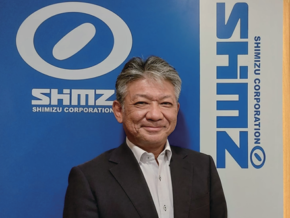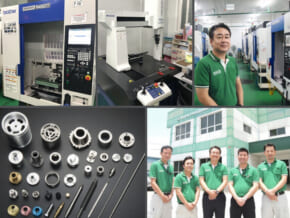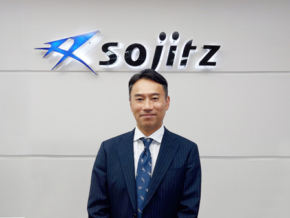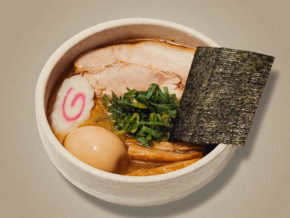Business Talk: Takeshi Konishi, Director of SM GUUN Environmental Company, Inc.
SM Prime, the largest real estate developer and mall operator in the Philippines and a core member of the SM Group, founded SM GUUN Environmental Company, Inc. (SGECI) as a joint venture to address environmental issues such as waste management in the country. The company works on environmental issues such as the development of waste management solutions in the Philippines.
We spoke with Mr. Takeshi Konishi, Executive Managing Director and Philippine Branch Manager of GUUN Co., Ltd. and SGECI Director. He has been stationed in Cebu since 2018, and asked him how his company works on environmental issues such as waste management solutions development in the Philippines, why did they expand their operations in the Philippines, and the story behind behind the partnership with SM Group.

Takeshi Konishi, Executive Managing Director and Philippines Branch Manager, GUUN Co., Ltd. and SGECI Director
In partnership with the Philippines’ largest conglomerate, the SM Group, we are driving the creation of a sustainable and happy environment for the future.
Philippine Primer:
Please tell us about GUUN’s operations.
Mr. Konishi:
Headquartered in Yokohama, Japan, GUUN Corporation operates material recovery and recycling facilities and provides environmental solutions services. We are experts in thermal recovery (technologies and processes that effectively recover, reuse, or convert thermal energy in the energy and environmental sectors), and a major player in Japan.
We utilize waste plastics and wood waste to produce fuel that can be used as an alternative to coal and petroleum, and this fuel is used for boilers at paper companies and as an alternative fuel at cement plants. More recently, we have also been supplying this fuel to companies that generate power from waste. Especially in Japan, we have been trading in this field, and from these, we have reduced consumption of natural resources and CO2 emissions.
Philippine Primer:
Why did you expand your operations to Cebu, Philippines?
Mr. Konishi:
Back in 2012, a consulting firm in Yokohama (Carbon Free Consulting) proposed that we participate in a research project to help improve waste management in emerging and developing countries.
At the time, Yokohama and Cebu City had signed a memorandum of understanding on sustainable urban development, and as part of the agreement, Yokohama provided technical information on waste recycling, sewerage improvement, and traffic congestion reduction. Based on this project, the City of Yokohama invited the mayors of municipalities and provincial governors, including Cebu City, to Japan for a program of site visits to sewage treatment facilities, waste treatment facilities, and energy management.
Through this project, we became interested in the waste problem in Cebu. In particular, sanitary conditions are poor and garbage is rarely sorted. In addition, since there is no place to recycle the waste, it is disposed of in landfills. If this situation continues, the landfills will soon be full, and this will have a major negative impact on the surrounding environment.
Therefore, we decided to implement a project similar to the waste plastic fuel conversion project at the Yokohama Plant to use waste plastics, paper, cloth, and other materials as fuel at cement plants in Cebu.
First, a small waste plastic recycling plant was set up on site by utilizing JICA’s “Dissemination and Demonstration Project” program. Here, the plant operated for about a year, employing local people to sort and grind the discarded waste plastic, eventually supplying the recycled plastic to a cement plant. 2014-15.
While this initiative proved to be a potential solution to Cebu’s waste problem, it was not enough for the recycling company to operate on its own to handle and sustainably recycle waste; it was necessary to work more closely with the community and businesses. In addition, to conduct the recycling business on a commercial scale, there were many issues to be addressed, including the site, scale, and financing of a commercial-scale plant.
In terms of financing, we took advantage of the Ministry of the Environment’s “Low Carbon Technology Innovation Creation Project for Developing Countries” subsidy program, and were able to receive two-thirds of the capital investment as a subsidy. The certification was granted because the project was recognized for its contribution to greenhouse gas reduction in that alternative fuels to coal and oil made from waste plastic can be used in cement plants.
The recycling project was realized by leasing privately owned land in Consolacion, which is adjacent to the northern part of Cebu City, where GUUN’s plant is currently located.
Construction of the plant was completed in May 2017, and commercial operations began in July of the same year. More than seven years have passed since then, including the pandemic period when operations had to be suspended, and the business has finally taken off and become profitable.
Philippine Primer:
Can you share the story behind the partnership with SM Prime?
Mr. Konishi:
It all started with an introduction from the Japan Desk of BDO (BDO Unibank) and a web conference with Ms. Liza Silerio, Vice President of Corporate Compliance Department of SM Supermalls’ Manila headquarters. When I visited SM CITY Consolacion in early 2023. Around March of the same year, she and other managers from related departments came to visit the factory. At first, we expected that they were considering our request to dispose of waste from the shopping mall. In reality, however, our objective was to internalize the recycling business as an SM group and build a system that would enable us to recycle in-house. However, they had no experience or know-how in recycling. That is why they proposed to establish a new company jointly with us.
The SM Group is the largest conglomerate in the Philippines, and I remember being surprised that they were planning to start a recycling business. In June of the same year, Mr. Hans T. Sy, Chairman of SM Prime’s Executive Committee, came to visit our small Cebu factory in person and expressed his willingness to positively consider the idea. Then, on September 18, at the Mall of Asia, our Chairman Fujieda and I participated in the signing of an agreement to establish a joint venture company.
In the Philippines, the socially accepted idea of spending the necessary costs for waste treatment and recycling has not yet been fully established. Recycling is several times more expensive than landfill disposal, and local governments, in particular, have been putting environmental measures on the back burner in favor of cost. The establishment of SGECI is a very significant development, and I believe that SM Group’s decision to collaborate with us is based on a deep understanding of environmental conservation. To make this trend of awareness-raising sustainable, we will continue to promote educational activities and recycling projects so that not only local governments and companies but also the general public understand the importance of environmental conservation.
Profile
Takeshi Konishi was born in Yokohama, Japan, and graduated from Keio University’s Graduate School of Science and Technology. He joined NKK (now JFE Steel) in 1992, later founding a plastic bottle recycling company with his boss in 2000. Since joining GUUN Inc. in 2007, Mr. Konishi has spearheaded the company’s operations in Cebu, Philippines, contributing to its sustainable environmental initiatives for 24 years.
What’s your motto?
When Mr. Hans T. Sy of SM Prime visited the Cebu Plant, the first thing he said when he got out of the car was, “Thank you for doing this work for this country. I was so moved by his words that I almost cried. Although it is not my motto, I believe it is important to do “work that is appreciated. Only when we are thanked for our work do we feel the meaning and significance of our work, and I feel that this is a great motivating force.













